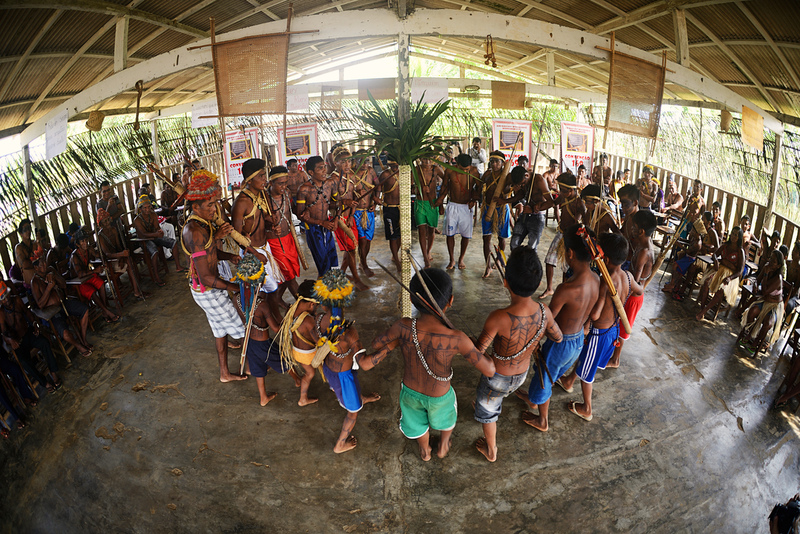We must incorporate Amazonian cultures, in their full diversity and free of prejudices, in the conversation about the Amazon.
This time, I’m reaching well beyond my field of technical expertise. Yet, to address the Amazon in all its complexity, we must sometimes step outside our comfort zone. So, consider this piece an (admittedly unpolished) invitation to reflect about a relevant topic.
There are some recurrent themes in the discussions about the Amazon: forest protection, cattle ranching, combatting illegality, respecting traditional territories, among many others. These are, without a doubt, vital topics in understanding the region and, consequently, promoting its sustainable development. They are not, however, enough.
As a researcher, I have often asked myself: where does “culture” show up in these discussions? How do the different segments of Amazonian peoples think? What are their shared values, their ambitions, their codes of conduct? How do they perceive what the rest of the country (and the world) claims to know with such conviction about their home?
As a researcher, I have often asked myself: where does “culture” show up in these discussions? How do the different segments of Amazonian peoples think?
Clarissa Gandour, Ph.D. in Economics from PUC-Rio and an expert in Amazon conservation policy
These are subjective questions, with no single or even a right answer. But it is increasingly clear to me that we need to address these questions and broaden the dialogue about Amazonian culture. Or rather, about Amazonian cultures — plural.
In Brazil, there is a somewhat more consolidated effort to deal with this in the context of native peoples. In addition to civil society initiatives, the cause gained strength with the recent creation of a dedicated ministry. Although there remain enormous challenges to be faced, there is already an acknowledgement that it is important to contemplate these peoples and their cultures in conversations about the Amazon.
But what about the others? I refer not only to other traditional peoples that live in the region, such as members of riverside communities, but to all other Amazonians. Rural settlers, large agricultural producers, family farmers, urban residents, and even land grabbers, loggers, and miners. How much do we really know about them?
I want to stress that I am in no way advocating to justify any action that violates laws, disrespects human rights, or uses natural resources in predatory and destructive ways. Nor do I advocate that all these groups should benefit from having organized political representation. I do believe, however, that they must all be thoroughly understood.
We could use this understanding to improve mathematical models (economists love to model human behavior as optimization problems, after all), validate the conclusions we draw from the data, criticize the diagnoses and recommendations we make, and, essentially, ask the right questions.
Yet, there is even more to it. This understanding is also vital to create a common language between parties that are currently disconnected. Perhaps the son of a farmer in Pará state feels as detached from the evidence I discuss in my pieces as he feels from social media posts written by indigenous influencers. If I knew a little more about his culture, would I be able to reach him in some way? Would we be able to have a productive conversation?
This understanding is also vital to create a common language between parties that are currently disconnected.
Clarissa Gandour
It is unrealistic, of course, to expect that all who are involved with the Amazon will have a complete understanding of its cultural nuances. We simply don’t have enough time to develop this deep an understanding in a context with such complex and specific demands. However, if we took greater interest in Amazonian cultures and were able to foster a sensibility about culture that was stripped of prejudice, would we not be able to better serve the region?
The opinions expressed in this article are the writer’s own.



